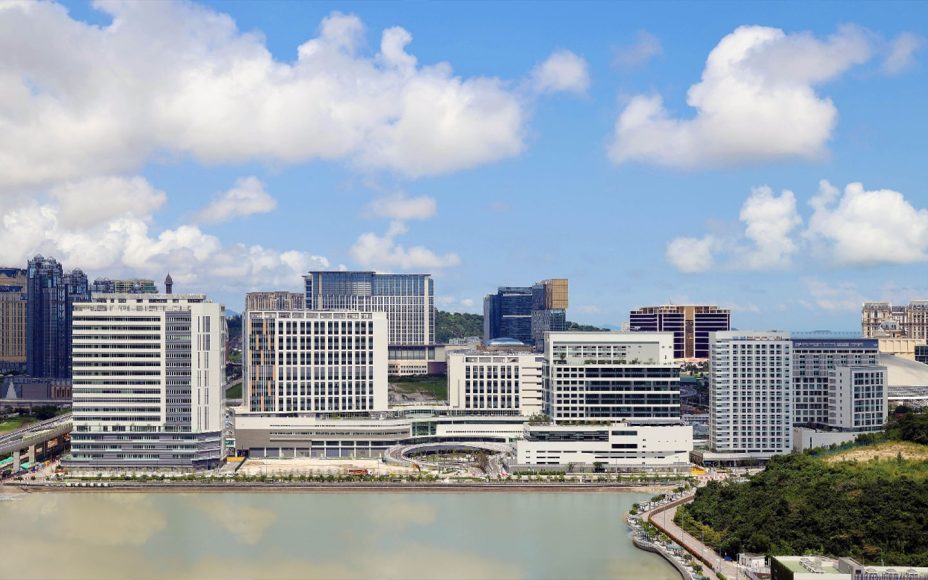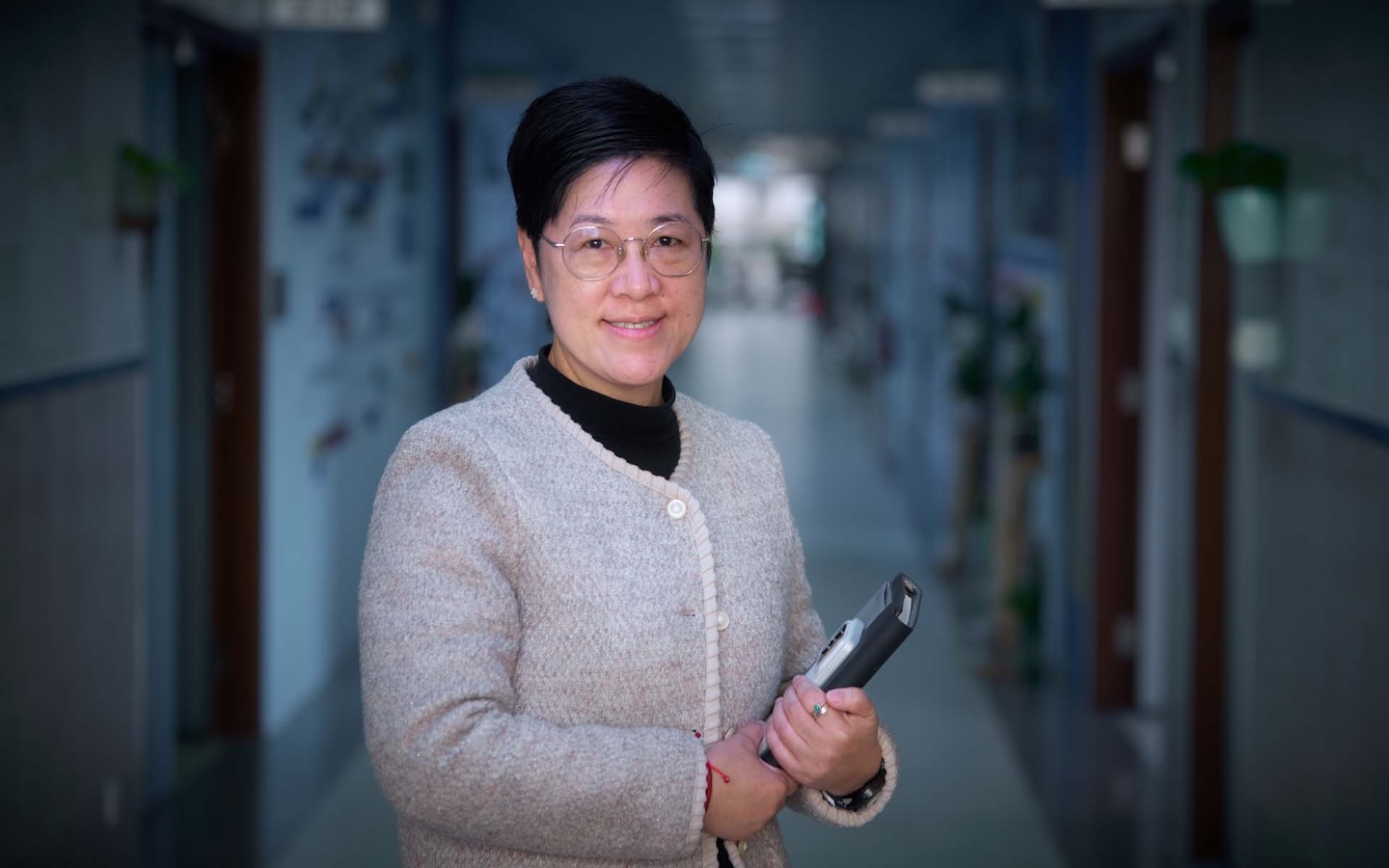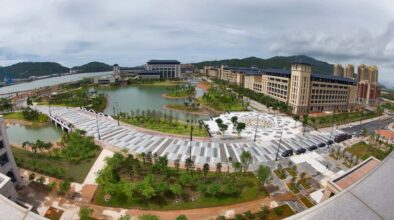For the past 150 years, the people of Macao were served by only one major public hospital: Conde São Januário, which was established by the territory’s Portuguese overseers in 1874. While the city also has private hospitals such as Kiang Wu, Yinkui, and the University Hospital, the recent soft opening of the Macao Union Hospital in December marks a significant advancement for the local healthcare industry.
Located in Cotai, the Macao Union Hospital represents several important milestones in the territory’s healthcare journey. For starters, it’s the first public hospital in Taipa and Coloane. It’s also by far the largest hospital in Macao, with a land area of 76,000 square metres (more than twice that of Conde São Januário). Macao Union Hospital’s first phase boasts 800 beds and 26 operating theatres. When its second phase, a specialist rehabilitation hospital, opens in 2027, an additional 300 beds will be on offer. The medical complex also boasts the new campus of the Kiang Wu Nursing College of Macau, which is 2.3 times larger compared to the old campus in Kiang Wu Hospital, and features more resources and facilities to train the SAR’s next generation of nurses.
It’s worth noting that Macao Union Hospital is not fully public, as it will also offer private medical service to tourists, with an emphasis on patients from the Greater Bay Area (GBA) and Southeast Asian countries. The government hopes that by partly allocating the hospital to medical tourism, it will be able to take full advantage of the complex’s resources, as well as diversify Macao’s economy.
Building the foundations
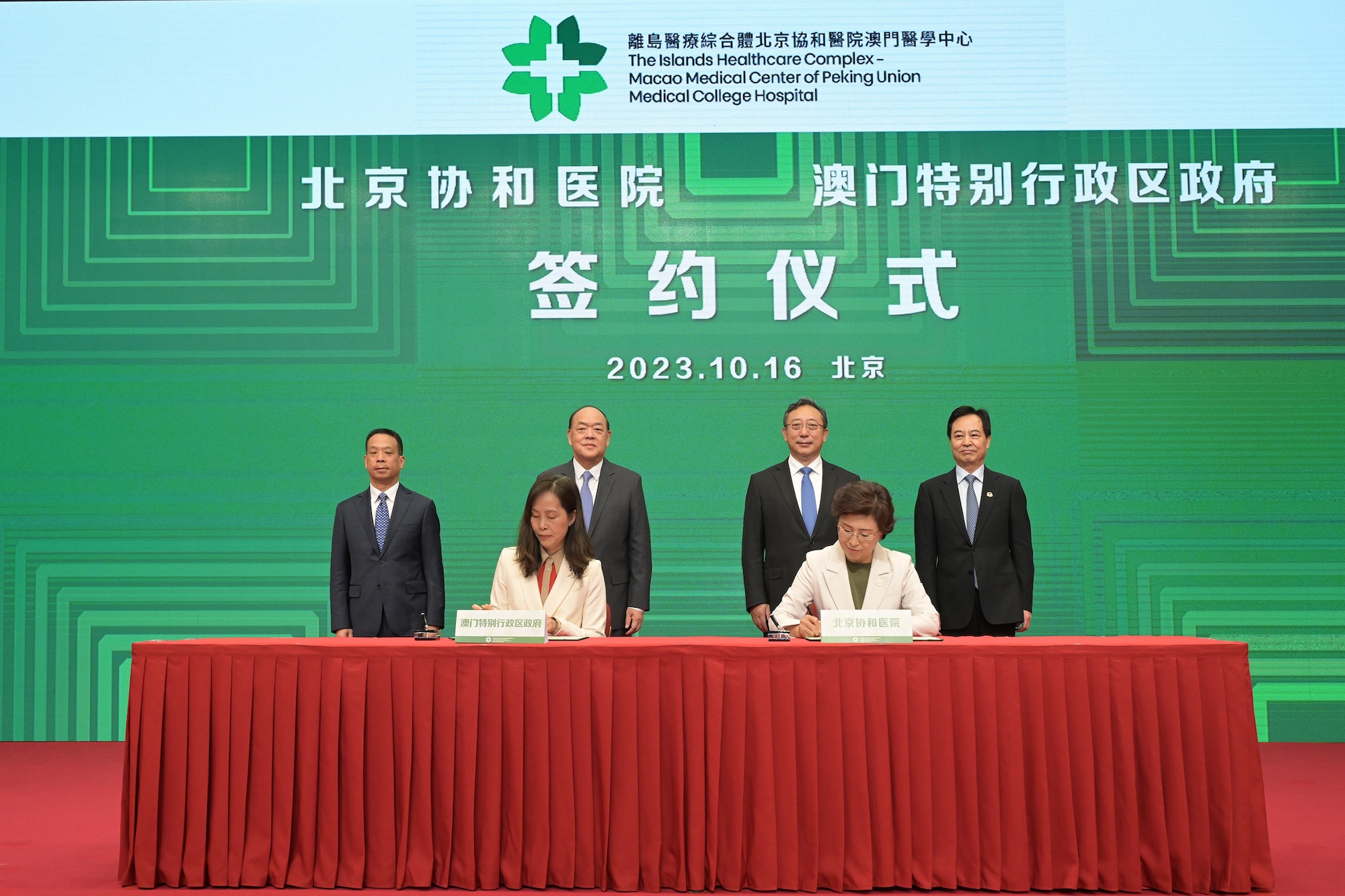
The groundbreaking facility’s genesis can be traced back to 2009. At that time, the government began considering building a second public hospital in response to the demand for more healthcare services in Taipa and Coloane. A year later, the location of the hospital was pinned down (on the northeastern corner of Cotai’s Seac Pai Van Reservoir). But it wasn’t until October 2019 that construction of the complex’s three main buildings kicked off.
During the construction period, Macao’s government began thinking up ways to equip its new hospital with world-class healthcare services and management. This was important: the hospital needed to fulfil its mandate of “promoting the development of the medical system and medical and health services in the Macao Special Administrative Region.”
Relying on local resources was not a viable option. There simply weren’t enough doctors in Macao to man a vast new hospital, and the city was already beset by long waiting times and a lack of specialist doctors.
To combat this personnel shortage, the government decided its best option was to partner with an existing medical team from outside of Macao. In 2020, Chief Executive Ho Iat Seng made his first official trip to Beijing. He prioritised meeting with the head of China’s National Health Commission, Ma Xiao Wei, to discuss collaboration opportunities. The mainland official suggested a partnership between Macao’s government and the prestigious Peking Union Medical College Hospital (PUMCH), a Class A tertiary hospital in Beijing established in 1921. The hospital had a strong reputation for training high-quality medical personnel, as well as treating complicated and rare illnesses.
A lengthy series of meetings between officials from Macao and PUMCH’s leadership team followed, culminating in an agreement signed on 16 October 2023. The formalised partnership would see the Beijing-based hospital take charge of the Macao Union Hospital’s daily operations and management, with Macao’s government handling its financial matters.
This partnership is aimed at elevating the quality of healthcare in Macao. According to Ho, “the [new] hospital should … leverage the brand effect of the PUMCH and stay committed in developing into a Guangdong-Hong Kong-Macao Greater Bay Area first-class medical centre with international influence.”
A state-of-the-art medical facility enters the scene
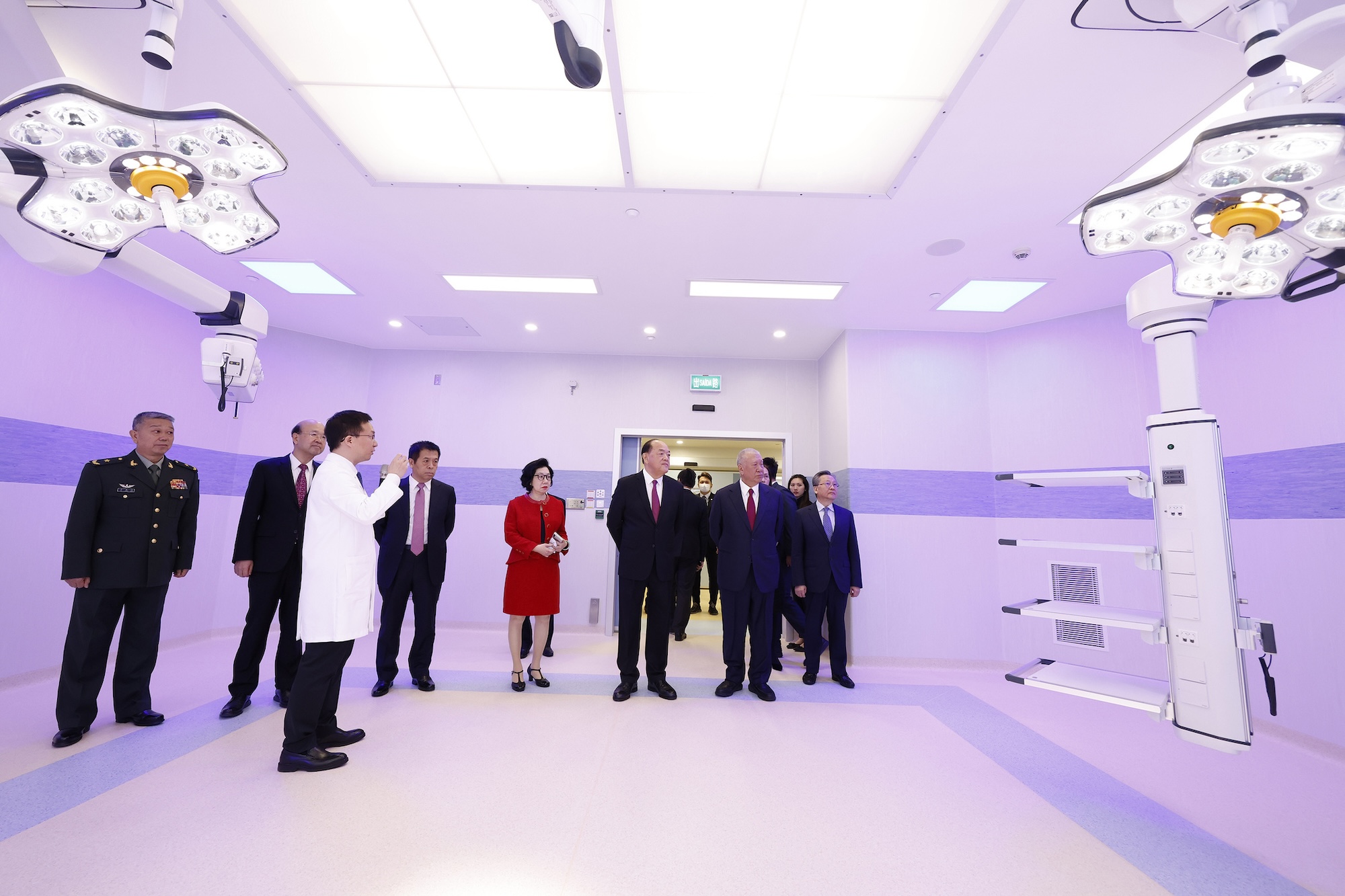
The Macao Union Hospital is expected to be a trailblazer in terms of implementing the latest healthcare advancements in the city. Its goals are threefold, according to the territory’s chief executive: to bring new medical techniques to Macao, to promote the local healthcare industry’s development and to improve local doctors’ professionalism.
To these ends, the healthcare complex has installed state-of-the-art medical equipment – including a radiotherapy system that recalibrates itself using artificial intelligence (AI). Director of the hospital’s preparatory office Lei Wai Seng has described it as “currently the most advanced in the Greater Bay Area”. He said it provided highly precise treatment for cancer patients that significantly reduced side effects usual with radiotherapy.
Other advanced equipment includes a linear accelerator (also used to treat cancer), CT scanners for accurate body imaging, nuclear magnetic resonance machines used in diagnostics, as well as devices for oncological imaging.
The hospital also houses Macao’s largest operating theatre at 113 square metres. It’s being praised as a hybrid suite allowing for combined surgical procedures that enable doctors to work more efficiently and reduce patients’ recovery times.
People are everything
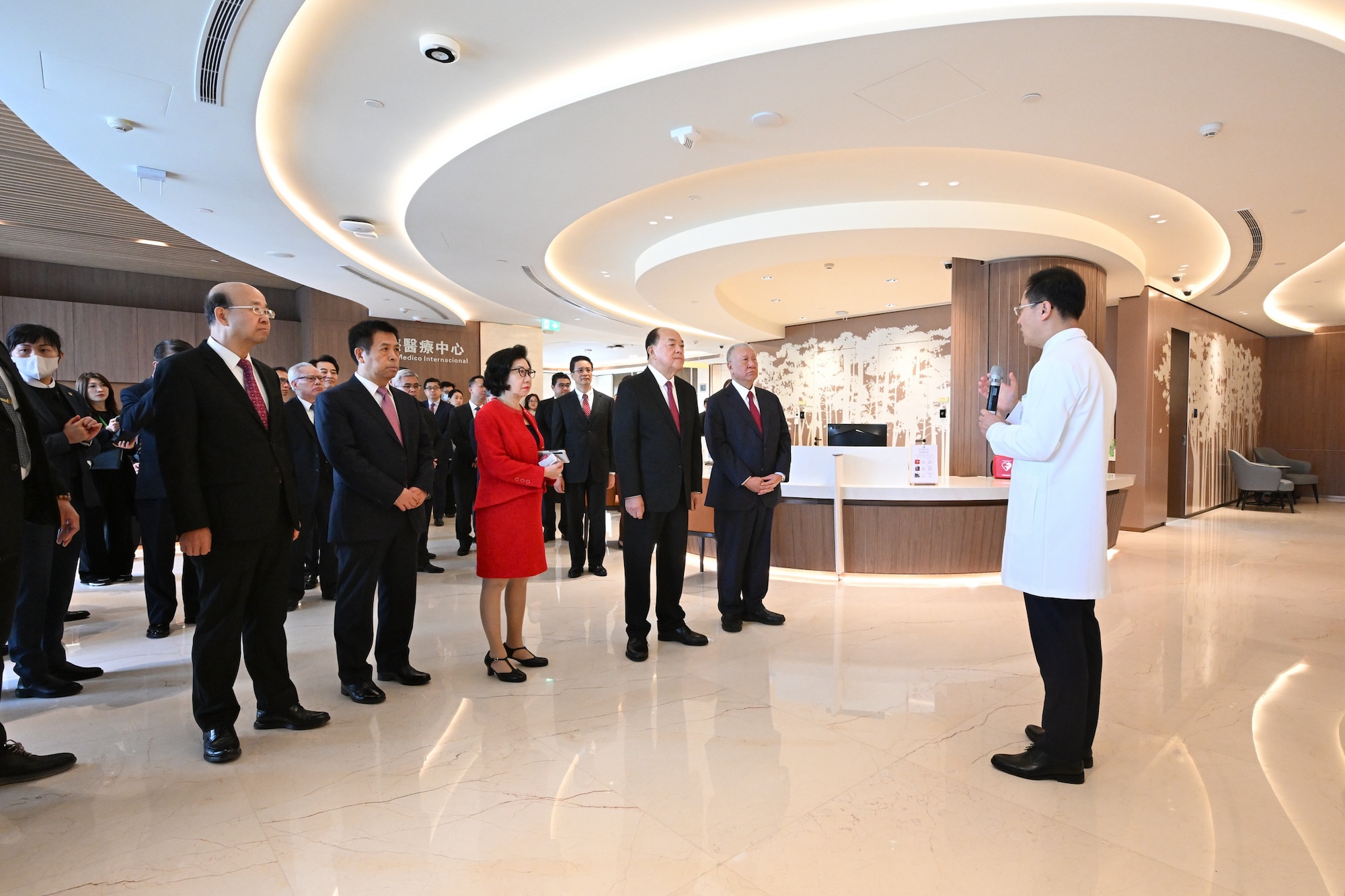
Cultivating better-than-ever crops of Macao-based healthcare professionals is a top priority for the new hospital. To achieve these, an agreement between PUMCH and Macao’s government stipulates that local doctors will have ample opportunities to train at the Beijing hospital – where they can receive first-hand experience in dealing with complex and severe illnesses.
The Macao Union Hospital has been gradually hiring more staff since its soft opening last December. It’s proving very popular: in the hospital’s second recruitment campaign, for 80 positions available only to Macao residents, it attracted almost 4,500 applicants.
Right now, the general hospital intends to employ 400 medical personnel during its initial stage of operation. In an effort to lower the barriers in the recruitment of highly experienced medical workers, employees of the hospital will be governed by private sector laws, rather than public ones. The Macao Union Hospital also recently became home to the islands’ only accident and emergency unit, which had been operating out of the Macau University of Science and Technology (MUST) Hospital.
General consensus has it that the Macao Union Hospital heralds the opening of a new chapter for healthcare in Macao. Not only will it better serve local residents’ health needs, but healthcare is one of four emerging industries in the city – along with modern finance, technology and the staging of large-scale sporting, cultural and business events. The hospital, therefore, is part of the government’s efforts to diversify its economy.
